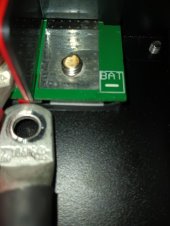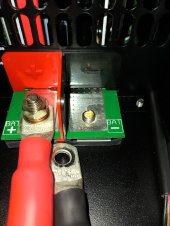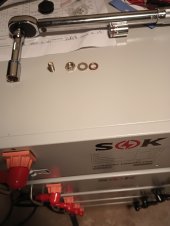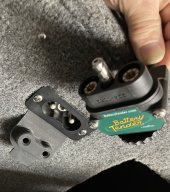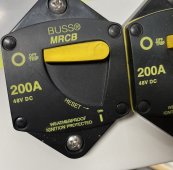HalfBaked
Ever the student
Yesterday, after nearly a week spent fully assembling a new complete system ordered from CC, I was torquing all the connections. The final connection to the Victron MPII 3kva inverter negative, the terminal bolt twisted off. The torque spec is 12nm, my wrench goes to 11nm and had just successfully torqued over 20 other connections.
While doing a little research on the issue yesterday I found someone with the exact model inverter, who broke the exact same bolt. https://community.victronenergy.com...ii-battery-terminal-bolt-snapped-sheared.html
I sent an email first thing this morning to CC to see how to proceed, will update as it evolves.
Meanwhile, does anyone know a fix, or will any attempt invalidate the warranty?
Considering getting a Phoenix to fill in until this is fixed.
Thoughts?
While doing a little research on the issue yesterday I found someone with the exact model inverter, who broke the exact same bolt. https://community.victronenergy.com...ii-battery-terminal-bolt-snapped-sheared.html
I sent an email first thing this morning to CC to see how to proceed, will update as it evolves.
Meanwhile, does anyone know a fix, or will any attempt invalidate the warranty?
Considering getting a Phoenix to fill in until this is fixed.
Thoughts?
Last edited:



